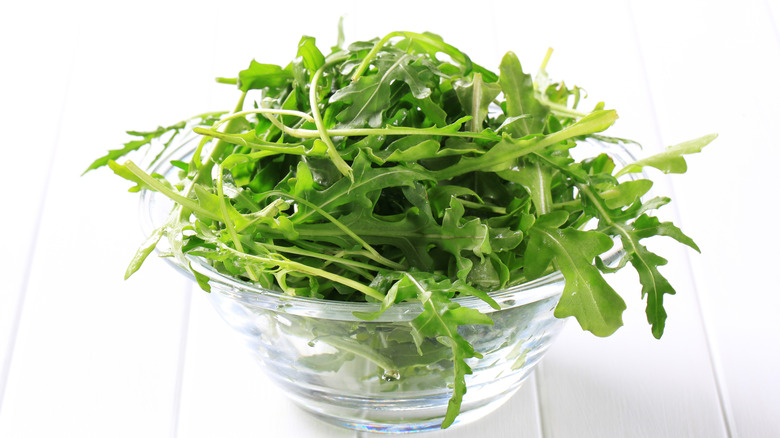Your Health Will Thank You If You Splurge On These 3 Foods, According To A Nutritionist
If you're health-conscious and if you have access to the internet, it's easy to get lost in the wealth of information about choosing a diet that's best for you. There are suggestions about foods that protect you from inflammation and resulting chronic disease and foods you should be consuming if you want to preserve the health of your brain for as long as you possibly can.
Have you ever wondered while on your weekly grocery shop if there were any specific items you should be dropping extra money on? What if there were a list of a few essentials you can keep coming back to for overall health? According to Vanessa Rissetto, a registered dietitian and the CEO of Culina Health, speaking exclusively with Health Digest, there are three such options.
Greek yogurt is one. "Plain non-fat Greek yogurt has a ton of protein and for me, is a vehicle for fiber," explained Rissetto. Packed with calcium, protein, probiotics, iodine, and vitamin B-12, Greek yogurt is known for its benefits to bone and gut health. Additionally, this tangy-flavored food of rich texture can improve a person's mood (thanks to its gut-brain benefit), help you build muscle (because of its high protein content), and protect against developing type 2 diabetes. The main difference between the non-fat and full-fat varieties lies in what kind of milk is used during the straining process. You strain whole milk for the regular kind and fat-free milk for the non-fat kind. Non-fat Greek yogurt has fewer calories and no saturated fat content. "I add chia seeds, fruit, and nut butter to turn it into an awesome snack," shared the nutritionist.
Add raspberries to your diet for their fiber content and more
Raspberries were number two on Vanessa Rissetto's list. "Raspberries have 8 grams of fiber and 68 calories per cup so it's a great fruit that helps meet that fiber requirement," shared the expert. Fiber is essential for healthy digestion and regular bowel movement, among other benefits.
If you're looking for tips to move toward a healthier diet that includes diabetes management, healthy skin, and protection against free radical damage, raspberries should be on your grocery list. Native to Asia Minor and North America, this sweet and tart fruit offers beneficial fiber, vitamin C, manganese, B vitamins, omega-3 fatty acids, and potassium. The antioxidants in these berries (which come in the hues red, yellowish pink, black, and purple) can help your cells fight and recover from oxidative stress and help prevent cancer, and the fiber can help support blood sugar control. Plus, raspberries are also associated with reducing the symptoms of arthritis, aiding weight loss (owing to their low calorie count), and fighting the signs of aging in your skin and brain.
If you're looking for a low calorie snack or ingredient for smoothies, desserts, or breakfast foods, raspberries are a staple you can turn to. On to number three on our nutritionist's list.
Arugula can make a great addition to your salads
The leafy green arugula, which belongs to the Mediterranean region, makes the best base for a salad, according to Vanessa Rissetto. "It has a peppery flavor and is part of the mustard greens family which is also known to be a natural diuretic in case you might be feeling bloated," explained the nutritionist.
Science has always touted the benefits of adding leafy greens to your diet but sometimes we tend to focus on the spinaches and kales. While there's certainly nothing wrong with that, it makes things interesting to mix things up too and this is where arugula can come in. Although very low in protein and completely free of fat, this plant, which is also referred to as "rocket," "roquette," or "rucola," contains a good amount of beta-carotene, vitamin C, folate, vitamin K, vitamin A, calcium, and magnesium. It's linked to cancer prevention, bone health, healthy glucose levels, increased insulin sensitivity, cardiovascular health, nerve and muscle health, immune system health, eye health, and lowered risk of cognitive decline.
Eating arugula every day could be a way to up the intake of cruciferous vegetables in your diet. Cruciferous vegetables are associated with longevity and overall health. Apart from salads, arugula can be made into a tasty pesto sauce (when combined with pine nuts, lemon juice, olive oil, and some cheese) or added to pasta, grain bowls, pizzas, soups, omelets, sandwiches, and wraps. If you're not a fan of the raw leafy green's peppery taste, you can cook the stuff to mellow the flavor out a little.



